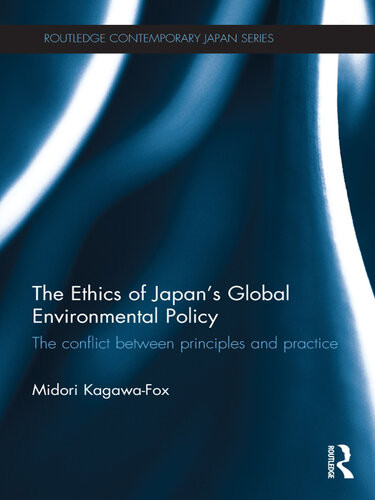

Most ebook files are in PDF format, so you can easily read them using various software such as Foxit Reader or directly on the Google Chrome browser.
Some ebook files are released by publishers in other formats such as .awz, .mobi, .epub, .fb2, etc. You may need to install specific software to read these formats on mobile/PC, such as Calibre.
Please read the tutorial at this link: https://ebookbell.com/faq
We offer FREE conversion to the popular formats you request; however, this may take some time. Therefore, right after payment, please email us, and we will try to provide the service as quickly as possible.
For some exceptional file formats or broken links (if any), please refrain from opening any disputes. Instead, email us first, and we will try to assist within a maximum of 6 hours.
EbookBell Team

4.7
16 reviewsThis book examines the Japanese government policies that impact on the environment in order to determine whether they incorporate a sufficient ethical substance. Through the three case studies on whaling, nuclear energy, and forestry, the author explores how Western philosophers combined their theories to develop a ‘Western environmental ethics code’ and reveals the existence of a unique ‘Japanese environmental ethics code’ built on Japan’s cultural traditions, religious practices, and empirical experiences.
Kagawa-Fox’s discussions show that in spite of the positive contributions that Japan has made towards the global environment, the government has failed to show a corresponding moral obligation to the world ecology in its environmental policy. The book argues that this is a result of the integrity of the policies having been compromised by vested interests and that Japanese business and politics ensure that the policies are primarily focused on maintaining sustainable economic growth. Whilst Japan's global environmental initiatives are the key to its economic survival in the 21st century, and these initiatives may achieve their aims, they do however fail the Japanese code of environmental ethics.